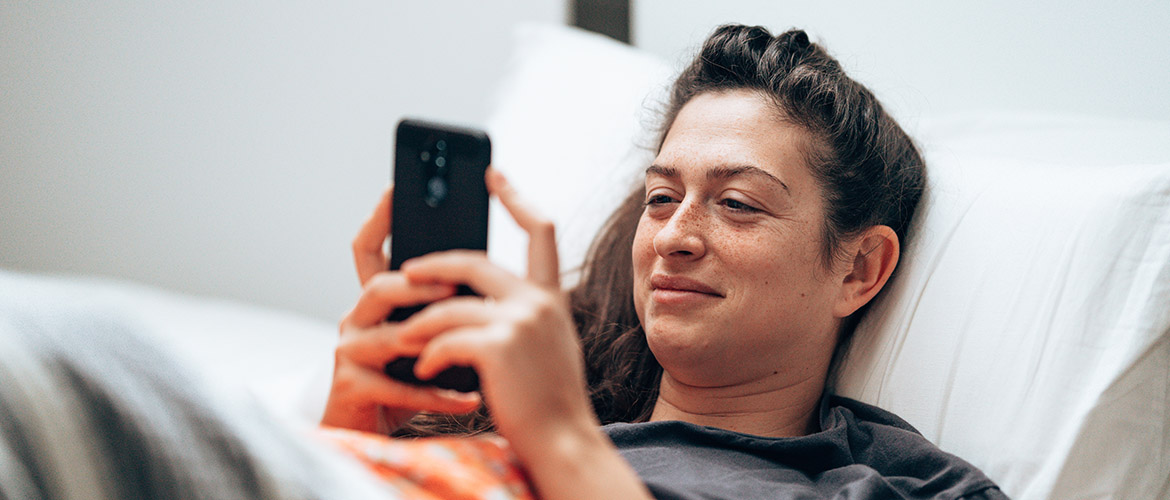Mental illnesses are so prevalent that more than half of all Americans will be diagnosed with at least one condition during their life.
Addressing this need plays an important part in physical health and overall well-being. Yet, many people never receive treatment. Although stress and anxiety caused by the COVID-19 pandemic highlighted demand for mental health services, stigma and lack of access to providers remain barriers to care.
In 2022 Blue Cross and Blue Shield of Texas (BCBSTX) is providing access to an online self-service platform to help fill a gap for some untreated members who have been reluctant to seek care or had difficulty finding it.
"Access means giving people easily accessible channels."
The platform, provided by an independent company called Learn to Live, offers around-the-clock mental health assessments and online cognitive behavioral therapy (CBT) for mild to moderate depression, substance use, social anxiety, insomnia and stress, worry and anxiety. It will be available at no added cost to members at least 13 years old in most group health plans.1
"It’s important to have the ability to help people who may not need formal treatment,” says Dr. Frank Webster, chief medical officer for behavioral health for Blue Cross and Blue Shield plans in Illinois, Montana, New Mexico, Oklahoma and Texas. “This allows members to do more things on their own and it’s cemented in evidence-based treatment. And they can do it on their own time.”
The platform offers initial assessments, with standardized screenings for depression and anxiety and some additional questions. Depending on results, it may recommend online lessons, computer-based therapy or virtual coaching. The platform directs members toward case managers and more formal treatment when needed.
“There are lots of people who are much more comfortable in a digital environment,” says Scott Bender, senior director of behavioral health clinical operations. “This could appeal to many members who have not been willing to initiate in-person care.”
For eligible members already receiving mental health services, the platform offers coping tools providers typically recommend patients use between office visits. “Things happen after patients leave their provider’s office,” Webster says. “It’s really critical to have some sort of resource like this to help them manage their care until their next office visit.”
BCBSTX had been moving toward adopting a digital behavioral health tool before the pandemic, but the national public health crisis dramatically emphasized the need for increased access to such services.
In 2020, Texas members’ outpatient visits for conditions such as mood disorders, anxiety and substance use disorders jumped from about 307,000 in January to roughly 393,000 in October. “In less than eight weeks in the spring of 2020, we went from less than 2,910 to 175,910 virtual visits per month,” Webster says.
While Americans appear to be more open-minded about mental health disorders and treatments, stigma persists, according to a survey conducted on behalf of the American Psychological Association. Nearly 40% of those polled indicated their opinion of someone would be influenced if they knew that person had a mental health disorder.
Digital behavioral health tools may help people struggling with fear of stigma and alienation get some level of help while maintaining their privacy. They also could supplement a provider shortage in many areas of the country, Webster says. Only about 33% of the need for mental health professionals is met in Texas, according to the U.S. Bureau of Health Workforce.
And research has shown that some online CBT programs are yielding promising results, according to a study published by the Society for the Advancement of Psychotherapy.
“If we can nudge people to this platform, it may be less threatening for them than making an appointment,” Webster says. “Access means giving people easily accessible channels. We don’t want stigma to prevent people from getting important services.”
1 Exceptions include Blue Advantage HMO and groups that outsource behavioral health

